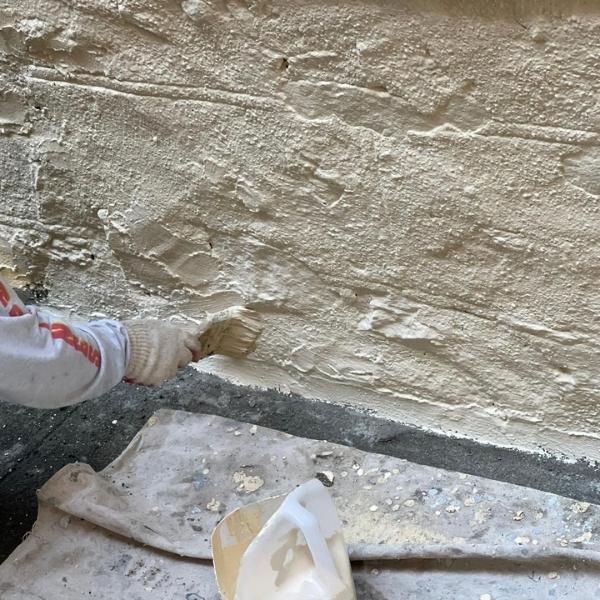


Stucco’s got that clean, textured look that adds charm and character. Plus, it holds up pretty well against the elements most of the time. But the thing is, Long Island’s coastal climate throws a few curveballs that push stucco to its limits. This results in damage that’s trickier and often more expensive than what folks face in other parts of New York.
If you’re noticing cracks, crumbling patches, or weird discoloration on your stucco, you’re definitely not alone. This guide walks through everything you need to know about stucco repair Long Island.
If you have stucco in your building in Long Island, you are likely to face these challenges and may be want to consider searching for the best stucco repair in New York to get the issue fixed timely manner:
Living by the ocean is good for the soul, but not so great for your stucco. Salt in the air, mixed with constant humidity, wears down stucco faster than you’d think. Over time, salt eats away at the binders that hold stucco together, causing cracks, stains, or patches where the stucco just falls off. It’s the sort of problem you rarely see in New York’s inland areas, but here on Long Island, it’s pretty common.
Part of Long Island’s charm is its older homes, many still sporting their original stucco exteriors. That’s lovely for character, but a headache when it comes to repairs. Modern stucco materials don’t always play nicely with older mixes, so patching up damage without it sticking out like a sore thumb can be tricky. If you’re thinking about Stucco repair in Long Island, it’s smart to hire someone who knows how to match the texture and color of those older finishes. Otherwise, the repair might end up drawing more attention than the damage ever did.
Storms are a fact of life on Long Island. Nor’easters and coastal storms roll in with heavy rain, powerful winds, and flying debris, everything that stucco hates. Even a perfectly maintained stucco wall can take a real beating. After a storm, repairs often go beyond surface cracks or chips. What starts as a simple cosmetic job sometimes turns into serious structural work, especially if water sneaks behind the stucco.
Even solid stucco can start showing trouble if you know where to look. Some issues are just cosmetic, but others run deeper and demand fast action. From hairline cracks to hidden moisture, spotting problems early matters. Here’s how to tell when it’s time for stucco repair New York homeowners can trust.
Bulging or bubbling spots mean the stucco might be pulling away from the wall, trapping moisture behind it. And stains or dark streaks often mean water is already working its way inside. Around here, you might also see white, chalky patches called efflorescence. That’s a sign that salt and moisture are moving through your walls.
Run your hand along your stucco wall. If it feels soft, sandy, or starts crumbling under your fingers, water has probably made its way inside and started weakening the material. That’s more than just a cosmetic issue. Left alone, it can turn into major structural trouble. Catching it early makes all the difference.
If your heating or cooling costs are suddenly creeping up and you can’t pinpoint why, your stucco could be part of the problem. Damaged stucco loses its ability to insulate your home. Warm air seeps out in winter, and summer heat pushes in. If everything else seems normal, it’s worth having your stucco inspected.
The right Stucco Repair in Long Island can save you a world of headaches. Here’s what you should be looking for in the contractor:
Stucco brings both style and protection to Long Island homes, but only if it’s in good shape. Between salty air, coastal storms, and older buildings, stucco here faces challenges you won’t find in the rest of New York. So if you’re noticing cracks, discoloration, soft spots, or unexplained spikes in your energy bills, it’s time to find a reliable expert for stucco repair in Long Island. Find a local expert who understands how stucco behaves in this unique climate, as they’ll know how to tackle the real problem and make sure the fix lasts.